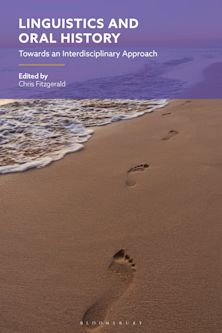- Home
- ACADEMIC
- History
- History - Other
- Historical Dictionary of Argentina
Historical Dictionary of Argentina
Historical Dictionary of Argentina
For information on how we process your data, read our Privacy Policy
Thank you. We will email you when this book is available to order
You must sign in to add this item to your wishlist. Please sign in or create an account
Description
Argentina celebrated a century of independence from Spain in 1910, and the republic was the tenth most important trading nation in the global economy. Although it had the promise of growth and industrial development at the time, crises, mismanagement, and unrealized potential associated with authoritarianism, populism, and military coups (culminating in thousands of “disappearances” over a period of unparalleled state terror) prevented that from happening. By 2001, Argentina announced that it would not service its foreign debt, triggering the largest default in world financial history. Since then, the country has sought to recapture the potential and promise of the past, and its place in the world while escaping from what appeared to be an interminable cycle of expansion, crises, conflict, and institutional collapse.
Historical Dictionary of Argentina contains a chronology, an introduction, appendixes, an extensive bibliography, and more than 800 cross-referenced entries on the country’s important personalities and aspects of its politics, economy, foreign relations, religion, and culture. This book is an excellent resource for students, researchers, and anyone wanting to know more about Argentina.
Table of Contents
Acknowledgements
Reader’s Note
Acronyms and Abbreviations
Map
Chronology
Introduction
THE DICTIONARY
Appendixes
Bibliography
About the Authors
Product details
| Published | Apr 15 2019 |
|---|---|
| Format | Ebook (Epub & Mobi) |
| Edition | 1st |
| Extent | 874 |
| ISBN | 9781538119709 |
| Imprint | Rowman & Littlefield |
| Illustrations | 1 map; 1 table |
| Series | Historical Dictionaries of the Americas |
| Publisher | Bloomsbury Publishing |
About the contributors
Reviews
-
Authored by two historians with specializations in the post–World War II era, Argentine history, and Latin American political economy, the Historical Dictionary of Argentina is the first new English-language work in this area of Latin American historical reference literature in 41 years. Features retained and updated from the earlier Historical Dictionary of Argentina, ed. by Ione S. Wright and Lisa M. Nekhom (1978), are a chronology for 1977–2018 and a significantly expanded bibliography, with sections on Peron and Peronism, the mothers of the Plaza de Mayo memorial protest, state terrorism, and the Falklands War. A website listing covers Argentine government sources, business organizations and political parties, and major newspapers and television channels. An added appendix on Argentine provinces gives total land area and population. Comparison of the contents with the previous work reveals a clear emphasis on adding detailed entries for significant individuals; business, professional, military, and political institutions; and political parties and agreements from the 20th century, with older entries for the 19th century retained selectively. Essential for all college and university reference collections.
Summing Up: Essential. Lower-division undergraduates through faculty.Choice Reviews
-
For someone who has spent over fifty years conducting research in Argentina and utilizing that research in teaching and scholarly publications, to spend time perusing this Dictionary is tantamount to releasing a sugar-dependent child unsupervised in a place like the Cafe Las Violetas. The satisfaction is immense: the pleasure of reading extensive, accurate, and well-written entries on the most important figures and events of Argentina history. . . . This is an outstanding scholarly source and certainly a most important source of historical information. Any scholar should be grateful for the contribution it can make to the historical accuracy of critical writing.
Hispania

ONLINE RESOURCES
Bloomsbury Collections
This book is available on Bloomsbury Collections where your library has access.


































